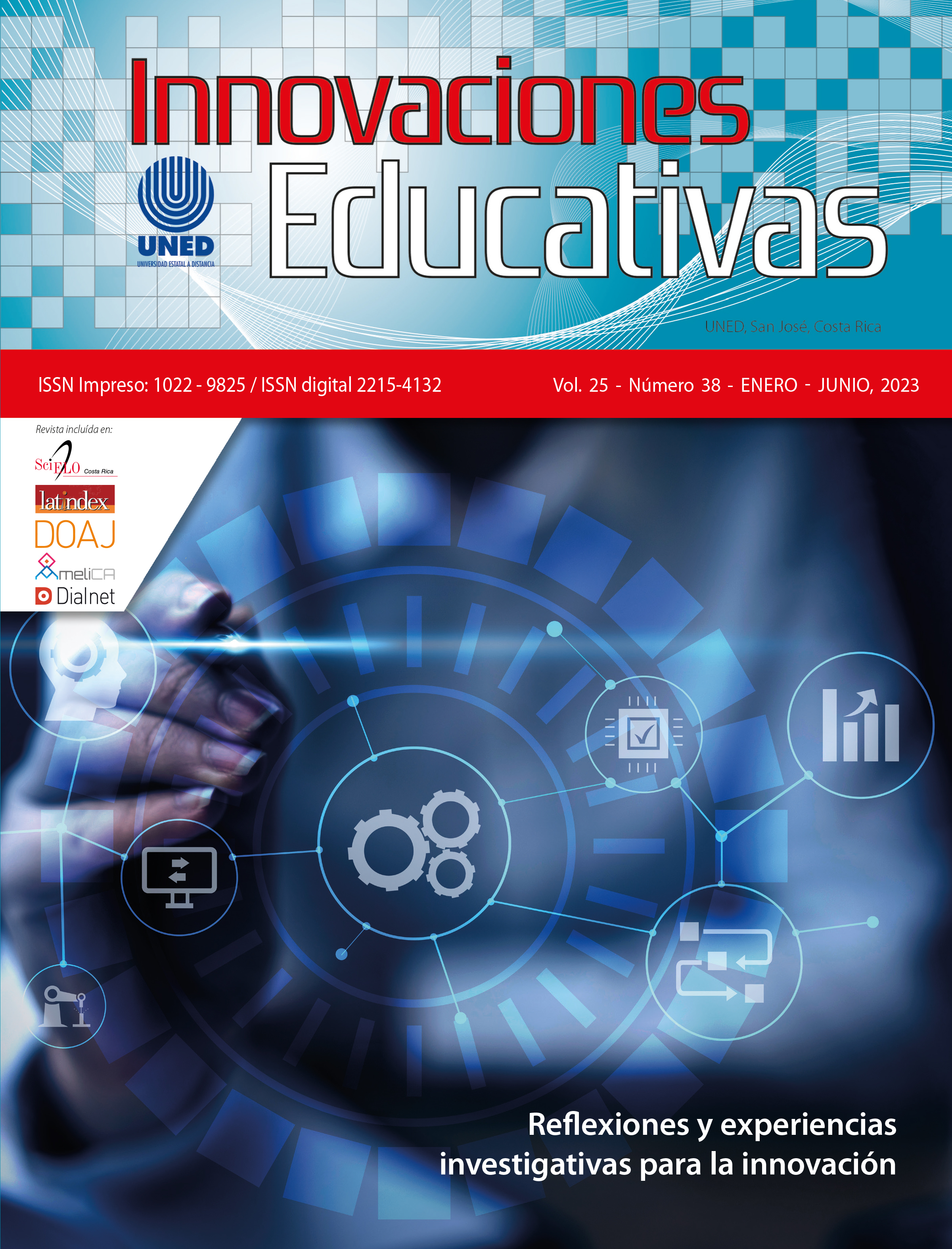Approach to the assessment process for formative learning with an ethical sense
DOI:
https://doi.org/10.22458/ie.v25i38.4365Keywords:
formative assessment, evaluation of previous knowledge, feedback , ethical sense, education, ethicAbstract
This essay seeks to carry out an approach to formative assessment with an ethical sense at the service of learning, providing the teacher with a reflection on assessment functions, examples, techniques and instruments, as well as assessment types and moments. Therefore, the essay's objective is to analyze the formative evaluation with an ethical sense at the service of learning, which requires knowing the diversity of students. Thereupon, the conclusion is that formative learning assessments with an ethical sense allow teachers to become professionals who embrace and get committed to the diversity of the students in their class while searching to achieve learning; likewise, the students obtain self-regulation to become expert apprentices.
Likewise, some strategies are provided so that it can be thought that the evaluation goes hand in hand with learning.
Therefore, it is concluded that the evaluation for formative learning with an ethical sense allows the teaching staff to become a professional who manages to appropriate and commit to various forms, styles and learning rhythms of the student in the context of their class in search of learning achievement; likewise, that the student self-regulate to become an expert learner.
References
Álvarez, J. M. (2001). Evaluar para conocer, examinar para excluir. Ediciones Morata.
Álvarez, D. y Moreno, M. (2015). Tecnologías de apoyo basadas en el diseño universal para el aprendizaje. Universidad de Colombia. https://bit.ly/3Epg3lu
Bogantes, J. y Palma, K. (2016). La regulación continua de la enseñanza y del aprendizaje desde el evaluar para aprender. Una experiencia de la Cátedra Didáctica del Lenguaje. Innovaciones Educativas, 18(24), 59-72. https://bit.ly/3AaDvR3
Boud, D. (2000). Sustainable assessment: rethinking assessment for the learning society. Studies in Continuing Education, 22(2), 151-167. https://bit.ly/3WXOXcd
Boud, D. y Falchikov, N. (2006). Aligning assessment with long-term learning. Assessment & Evaluation in Higher Education, 31(4), 399-413.
Boud, D. (2020). Retos en la reforma de la evaluación en educación superior: una mirada desde la lejanía. RELIEVE, 26(1), 1-15. https://bit.ly/3tqvm7a
Canabal, C. y Margalef, L. (2017). La retroalimentación: la clave para una evaluación orientada al aprendizaje Profesorado. Revista de Currículum y Formación de Profesorado, 21(2), 149-170. https://bit.ly/3Uvlnth
Castillo, S. y Cabrerizo, J. (2010). Evaluación educativa de aprendizajes y competencias. Pearson Educación.
Cardona, J. (1994). Metodología innovadora de evaluación de centros educativos. UNED.
Carless, D.; Kam, K.; Chan, H.; To, J.; Lo, M. y Barrett, E. (2018). Developing students’ capacities for evaluative judgement through analysing exemplars. En D. Boud, R. Ajjawi, P. Dawson y J. Tai (Eds.), Developing Evaluative Judgement in Higher Education: Assessment for knowing and producing quality work.
Fraile, J.; Izquierdo, M.; Zamorano, D. y Sánchez, I. (2020). Autorregulación del aprendizaje y procesos de evaluación formativa en los trabajos en grupo. RELIEVE, 26(1), 1-12. https://bit.ly/3fXWjvK
García, S. (2002). La Validez y la Confiabilidad en la Evaluación del Aprendizaje desde la Perspectiva Hermenéutica. Revista de Pedagogía, 23(67), 1-15.
Hernández, V. M.; Santana, P. J. y Sosa, J. J. (2021). Feedback y autorregulación del aprendizaje en educación superior. Revista de Investigación Educativa, 39(1), 227-248. https://bit.ly/3G8snHV
López, V. y Pérez, Á. (2017). Evaluación formativa y compartida en educación: experiencias de éxito en todas las etapas educativas. Universidad de León, Secretariado de Publicaciones. https://bit.ly/3TrNrfv
Moreno, T. (2016). Evaluación del aprendizaje y para el aprendizaje. Reinventar la evaluación en el aula. UAM, Unidad Cuajimalpa. https://bit.ly/3tqcRzJ
Santos, M. A. (2001). La evaluación: Un proceso de diálogo, comprensión y mejora. Ediciones ALJIBE.
Santos, M. A. (2010). Una pretensión problemática: educar para los valores y preparar para la vida. Revista de Educación, 351, 23-47. https://bit.ly/3fUGAhf
Segura, M. (2007). La perspectiva ética de la evaluación de los aprendizajes desde un enfoque constructivista. Revista del INIE-UCR, 7(1), 1-22. https://bit.ly/3Eo5eQx
Segura, M. (2018). La función formativa de la evaluación en el trabajo escolar cotidiano. Revista Educación, 42(1), 156-175. https://doi.org/10.15517/revedu.v42i1.22743
Downloads
Published
How to Cite
Issue
Section
License
Copyright (c) 2023 Innovaciones Educativas

This work is licensed under a Creative Commons Attribution-NonCommercial-NoDerivatives 4.0 International License.

